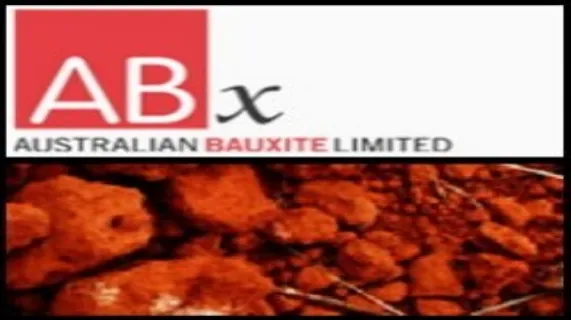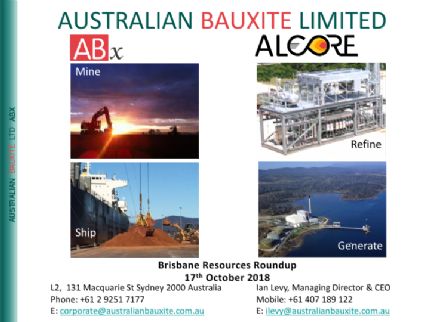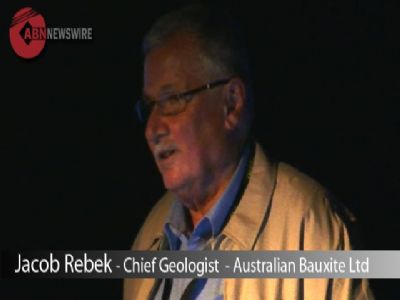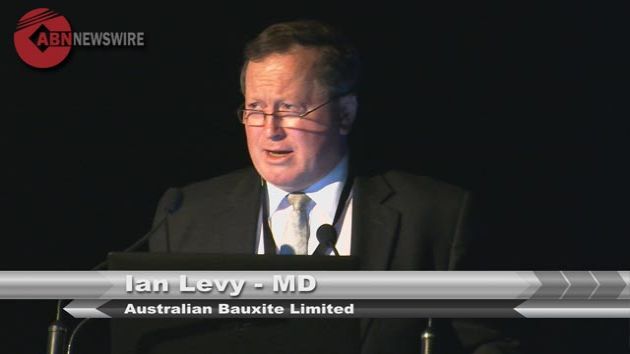
Tasmania Drill Success 6 Metres Bauxite Near Port
Sydney, Sep 19, 2012 AEST (ABN Newswire) - Emerging bauxite development company, Australian Bauxite Limited ( ASX:ABZ) is drilling ahead of schedule in Tasmania at Bauxite Deposit DL-130 located 65km south-south-west of Bell Bay deepwater port in a privately owned plantation that is under harvest. Thicker than expected bauxite has been encountered up to 6 metres thick over a wide area which suggests that with this project could commence production earlier than anticipated with minimal impacts, returning the land to plantation timber after extracting the surface layer of bauxite and replacing the thin soil layer.
ASX:ABZ) is drilling ahead of schedule in Tasmania at Bauxite Deposit DL-130 located 65km south-south-west of Bell Bay deepwater port in a privately owned plantation that is under harvest. Thicker than expected bauxite has been encountered up to 6 metres thick over a wide area which suggests that with this project could commence production earlier than anticipated with minimal impacts, returning the land to plantation timber after extracting the surface layer of bauxite and replacing the thin soil layer.
Australian Bauxite CEO Ian Levy said; "ABx invested in Tasmania after careful consideration of risks and potential rewards based on expert advice and an understanding of Tasmania's special circumstances.
"We believe that with goodwill and common sense, ABx can develop a sustainable project in Tasmania. Our discovery of thick bauxite in viable locations near deepwater ports augers well for an early commencement of a bauxite extraction and export business from Tasmania."
Logistical Setting
Central Northern Tasmania has good infrastructure, with an operating rail line passing through the bauxite areas as well as heavy haulage highways. Both rail and road link directly to efficient operating mineral export ports at Burnie and Bell Bay that have spare port capacity (Figure 2, see link below).
Tasmania has a well-developed electric power grid based mainly on hydroelectric power and has ample water supplies. Natural gas from the Bass Strait field is distributed throughout Tasmania and there are many well-established population centres.
Tasmania has a proud mining heritage. Coal mining occurs in the Fingal Valley area east of the main bauxite areas and large cement works are operating in the area south of Devonport to the west of the bauxite areas. The Bell Bay aluminium smelter is operated by Rio Tinto Alcan (see Figure 2).
Central Northern Tasmania has some of Australia's best steel fabrication and heavy machinery workshops as well as highly experienced earth moving, transport and construction contractors.
In summary, the Tasmanian bauxite project areas in central northern Tasmania are supplied with power, water, communications and transport infrastructure, near industrial centres serviced by efficient mineral export ports that operate all year round without seasonal interruptions.
Bauxite Types
Based on results to date from 334 drill holes & 1,521 samples, it is estimated that ABx can produce direct shipping bauxite ("DSO") comprising gibbsite which is the premium low-temperature aluminatrihydrate mineral. All of ABx bauxites are free of the refractory, high-temperature monohydrate alumina mineral called boehmite and levels of the deleterious reactive silica are very low. These characteristics makes the DSO bauxite ideal for sweetener bauxite circuits or as feedstock into lowtemperature alumina refineries.
Note that there is often an upper layer of PDM-DSO bauxite comprising about 30% pebble-sized grains of a black, glass-like alumina spinel which is emery-like and called "PDM". It is saleable as bauxite in high temperature alumina refineries or extracted by simple gravity methods and used for higher-priced industrial products such as an abrasive or a source of alumina in nearby cement plants.
Note that the bauxite outlines shown in Figure 3 as red dashes are based on surface mapping and sampling of the easily accessible areas only. (Figure 3, see link below).
Other bauxite targets have been identified in this area using the company's proprietary exploration technology but still require ground-truthing by sampling and drilling.
View the complete Australian Bauxite announcement including Figures, please click the link below:
http://media.abnnewswire.net/media/en/docs/ASX-ABZ-695483.pdf
About ABx Group Limited
 ABx Group Limited (ABx) (ASX:ABX) started as a bauxite miner in Tasmania in 2014 & controls the Eastern Australian Bauxite Province. In 2020 to 2023, ABx also discovered Australia’s only true ionic adsorption clay Rare Earth Elements resource at Deep Leads in pine plantations 40km west of Launceston with a JORC-compliant resource of 89 million tonnes from only 29% of the mineralised outline, averaging 844 ppm total rare earth oxides that is the most enriched in the critically important rare earths, Dy and Tb, of any Australian REE deposit.
ABx Group Limited (ABx) (ASX:ABX) started as a bauxite miner in Tasmania in 2014 & controls the Eastern Australian Bauxite Province. In 2020 to 2023, ABx also discovered Australia’s only true ionic adsorption clay Rare Earth Elements resource at Deep Leads in pine plantations 40km west of Launceston with a JORC-compliant resource of 89 million tonnes from only 29% of the mineralised outline, averaging 844 ppm total rare earth oxides that is the most enriched in the critically important rare earths, Dy and Tb, of any Australian REE deposit.
ABx has also developed a proprietary technology to produce fluorine chemicals from an aluminium smelter waste product and return the fluorine back into the smelters, thus reducing reliance on imported aluminium fluoride.
ABx has committed a large proportion of its expenditure into Research and Development and has found ways to capitalise on the main strengths of its bauxite type which is very clean, free of all deleterious elements and can be separated into different product streams using physical, chemical and geophysical methods. It has produced and marketed specialist bauxite products for the manufacturers of fertiliser, cement with high late strength for major infrastructure such as bridges and is in the advanced stages of approvals for production of metallurgical bauxite from its Binjour Bauxite deposit with JORC-compliant resources of 37 million tonnes of bauxite, in a joint development with a Chinese-focussed Australian trading company Good Importing International.
ABx is also preparing to produce fertiliser grade and cement grade bauxite from its DL130 bauxite quarry in northern Tasmania, 40km west of Launceston. This quarry is sited in the middle of the large Deep Leads REE deposit and may one day be a site for heap leaching of the REE using a low-cost, benign leachate with the same acidity as apple juice or tea.
ABx endorses best practices on agricultural land, strives to leave land and environment better than we find it. We only operate where welcomed.
| ||
|








